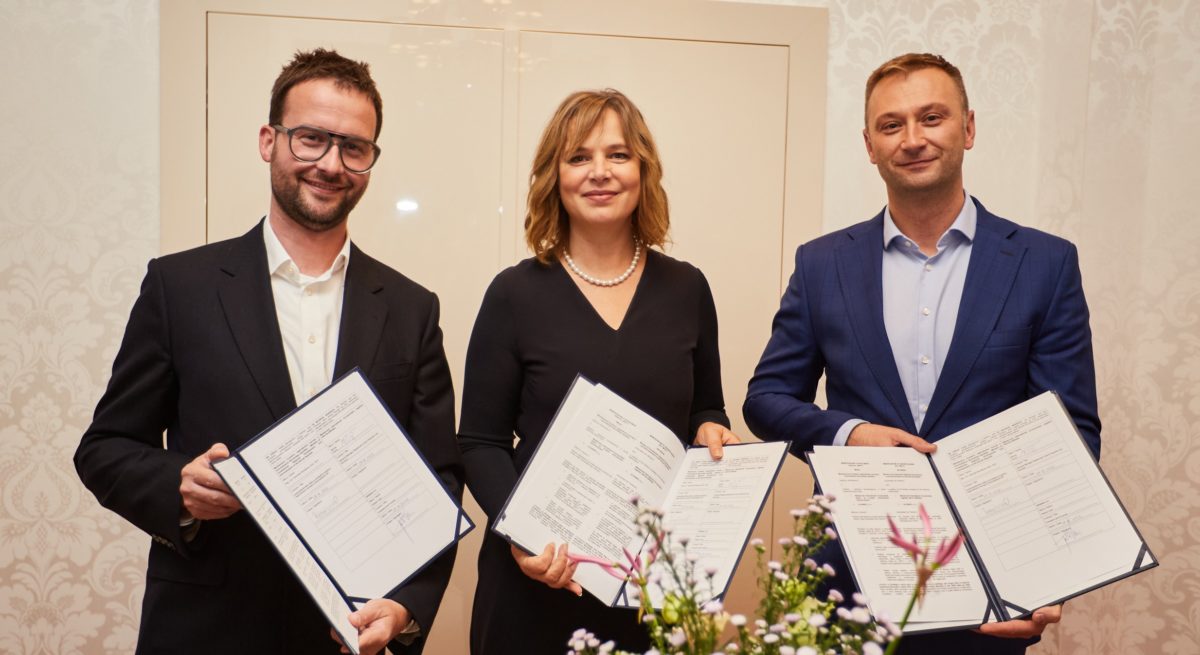GLOBSEC, together with its long-term partner, Mastercard, has set up a wider coalition of partners with the goal to support the Ministry of Investments, Regional Development and Informatization of the Slovak Republic (MIRRI)’s efforts to accelerate the digitisation of Slovakia’s economy and to increase its resilience and sustainability.
At the GLOBSEC Tatra Summit 2022, GLOBSEC and Mastercard, in cooperation with the Slovak government, have announced the creation of the Digital Country Partnership between the public and private sectors. Over the next four years, the partners intend to support Slovak SMEs (Small and Medium Enterprises) in their digital transition, jointly work on improvement of e-government services, support the FinTech community, address the cyber security challenges, and actively leverage data-based insights to createe key economic indicators, such as the Quality-of-Life Index or Digital Index, and exploree avenues of green growth solutions.
“This collaboration will allow us to work with a strong partner to improve the digitization of small and medium-sized enterprises, focusing on the digital skills of entrepreneurs and their employees, in order to mitigate the impact of automation and robotization. We will also work together to develop the digital skills of other groups of the population, especially teachers, seniors and disadvantaged groups,” said Veronika Remišová, Deputy Prime Minister and Minister of Investments, Regional Development and Informatization of the Slovak Republic
“Thanks to this digital partnership we will have the opportunity to bring the most innovative technological solutions and our global experience to Slovakia. Our aim is to support the digitalization of small businesses for the long term through the development of intelligent infrastructure, data protection, cyber-security and insights. As an established partner to the public sector, Mastercard has a key role to play in supporting the further development of digitalization in Slovakia and making modern technologies accessible to everyone,” commented Michal Čarný, Mastercard’s General Manager for Slovakia and the Czech Republic.
“I am very pleased that we, here at GLOBSEC, have been able to contribute our experience and expertise in creating this partnership, and I believe that we can continue to help with such important issues as the digitization of society and the ecological direction of the country,” added Róbert Vass, President and Founder of GLOBSEC.
The announcement of the Digital Country Partnership is the first step in a long-term strategic cooperation between the public and private sectors in Slovakia with the objective of strengthening the future economic growth of the country and its competitiveness as well as its global relevance. With this initiative, the partners fully support the government’s goals identified in the Recovery and Resilience Plan (“RRP”), endorsed by the European Commission in June 2021 and declare their readiness to cooperate in its implementation.
A Memorandum of Understanding
The Deputy Prime Minister of the Slovak Republic, Veronika Remišová, signed this partnership in the form of Memorandum of Understanding with GLOBSEC and Mastercard, to support the objectives associated with the digitization of self-employed and small and medium enterprises (SMEs). The aim is to increase their appetite for using innovative technologies and processes and improve their digital literacy, awareness of and resilience to cyber threats.
Digitization is a prerequisite for economic growth and competitiveness of Slovakia
All three digital partners intend to use existing solutions as well as innovative approaches, processes, solutions and services to support the modernization of public services to reduce bureaucratic load and improve the quality of government services.
The need for cooperation stems from the strategy and Action Plan to improve Slovakia’s position in the DESI index until 2025, approved by the Slovak government in May 2021, which contains a set of objectives for connectivity, human capital, internet use, digital integration and government e-services.

